 |
Deadlines are often arbitrary, almost always flexible, and hardly ever trigger the consequences we think – or are told – they will.
|
117 |
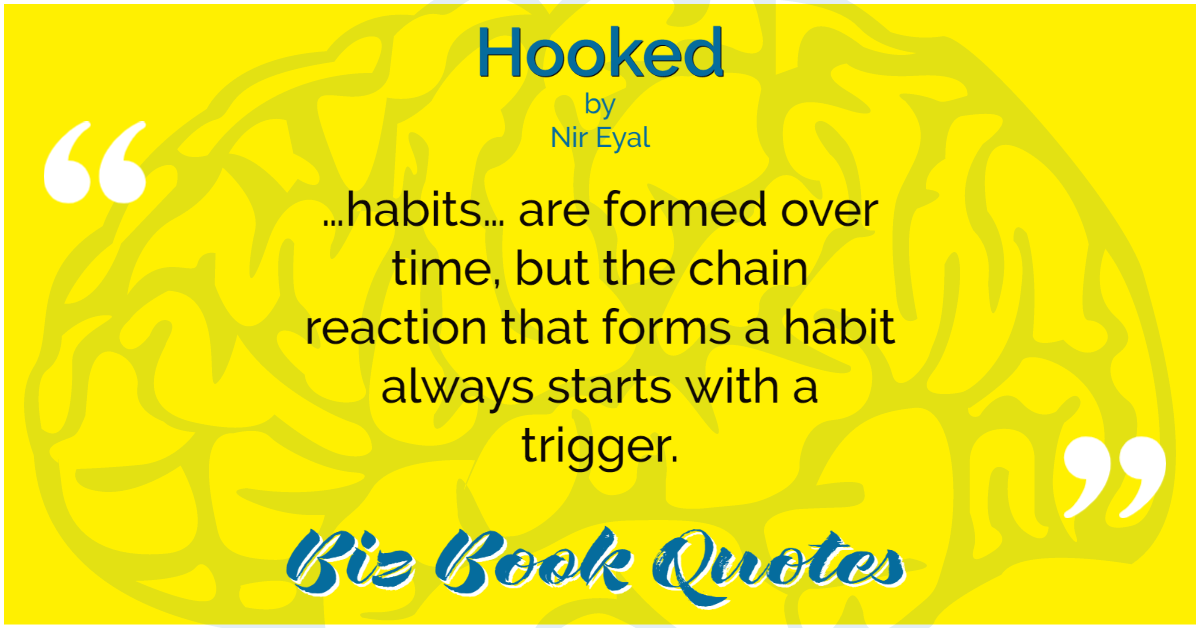 |
…habits… are formed over time, but the chain reaction that forms a habit always starts with a trigger.
|
40 |
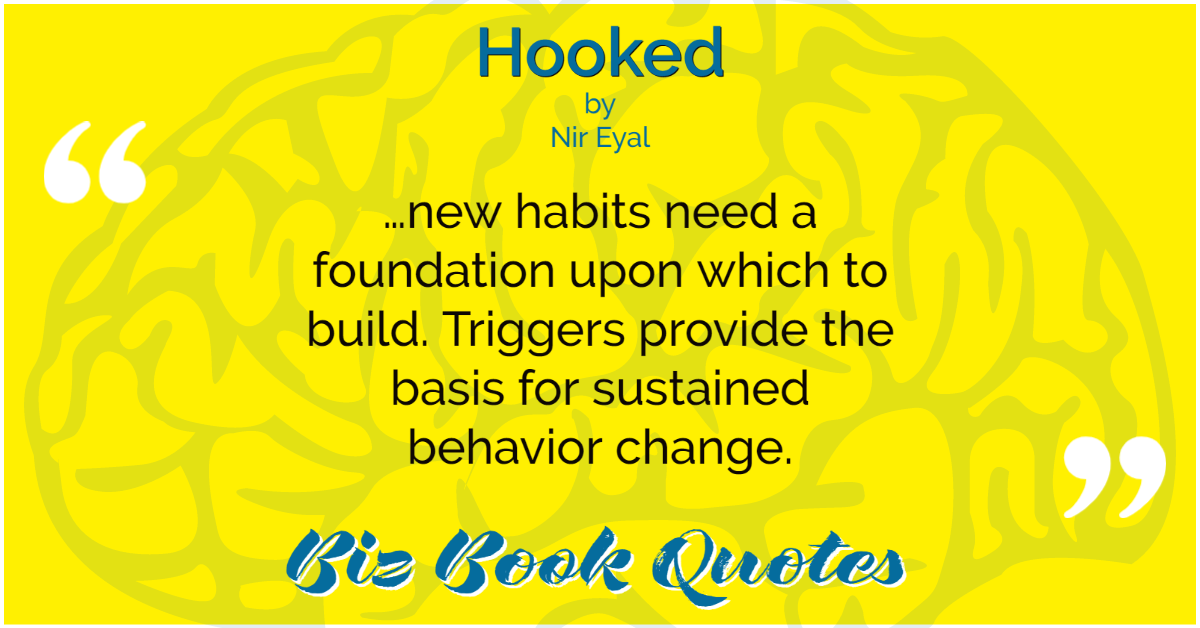 |
…new habits need a foundation upon which to build. Triggers provide the basis for sustained behavior change.
|
40 |
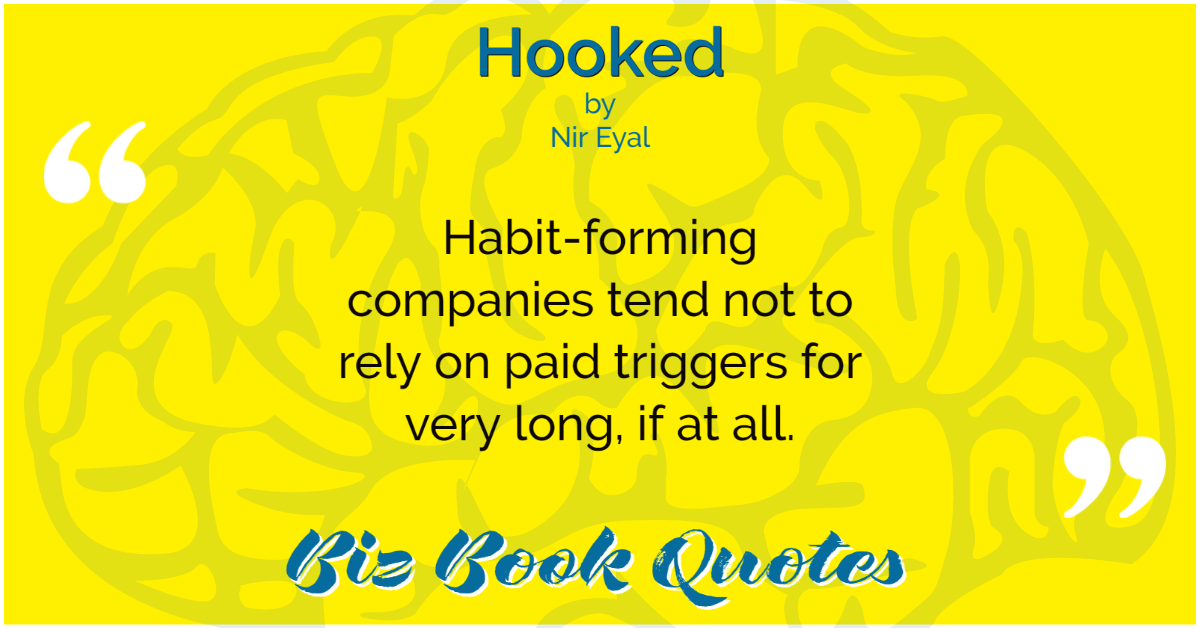 |
Habit-forming companies tend not to rely on paid triggers for very long, if at all.
|
44 |
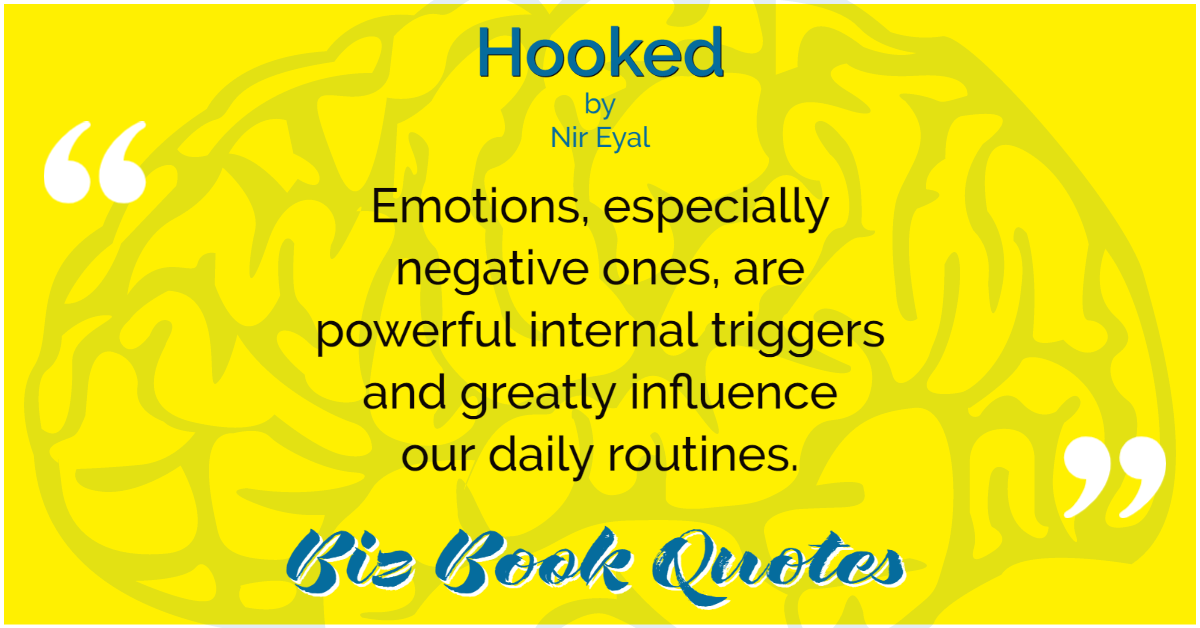 |
Emotions, especially negative ones, are powerful internal triggers and greatly influence our daily routines.
|
48 |
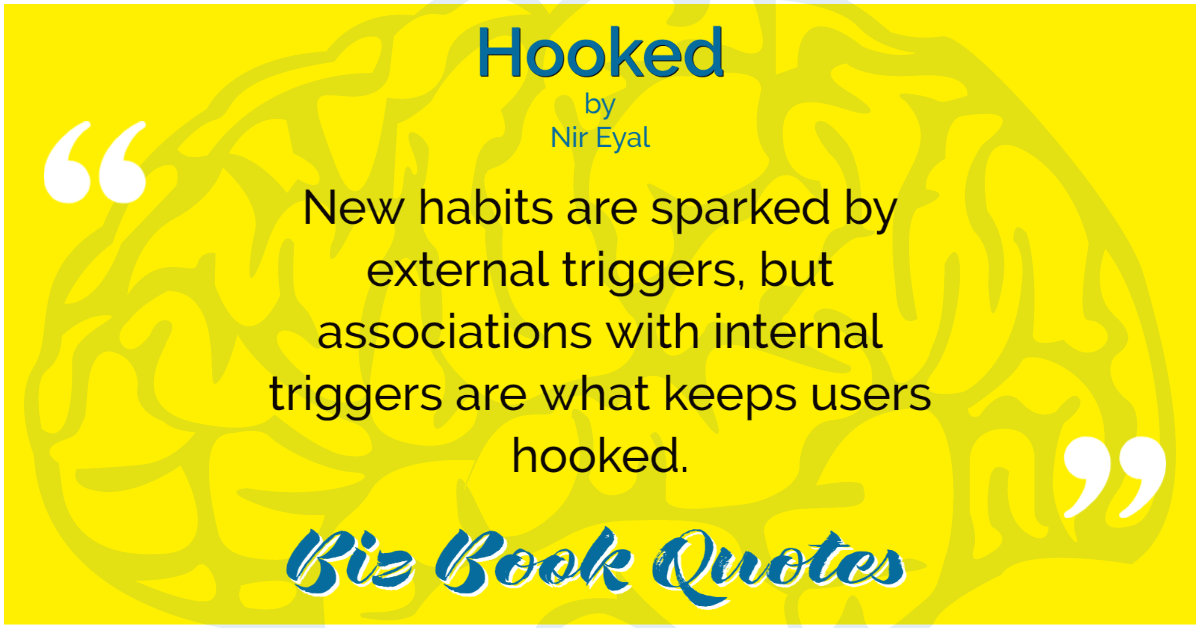 |
New habits are sparked by external triggers, but associations with internal triggers are what keeps users hooked.
|
51 |
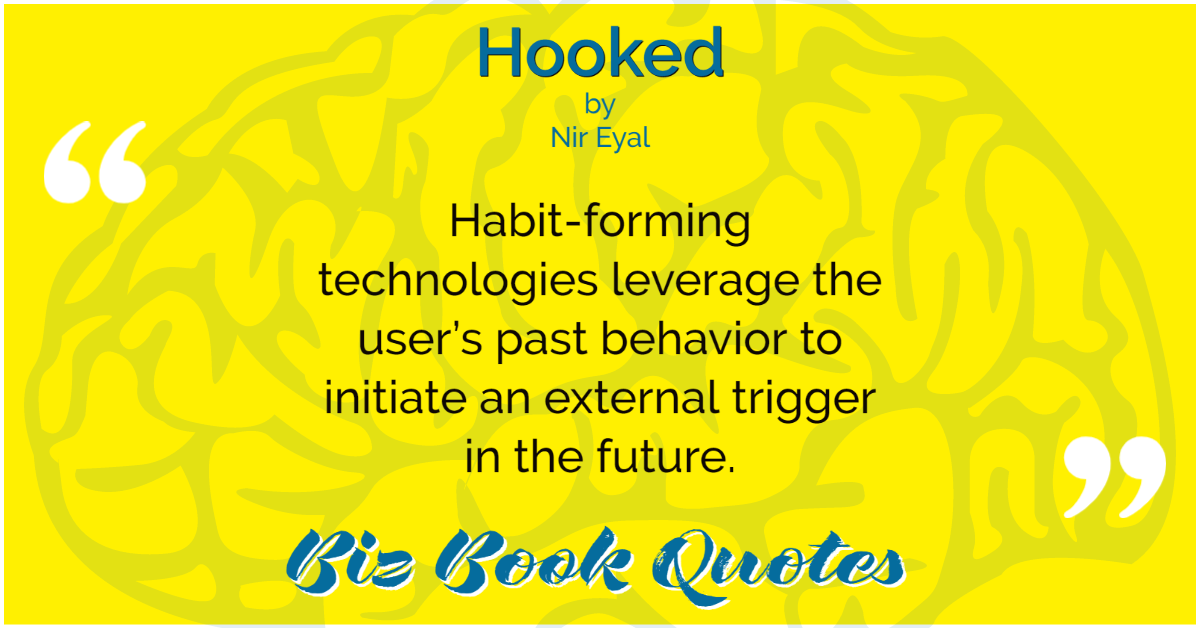 |
Habit-forming technologies leverage the user’s past behavior to initiate an external trigger in the future.
|
154 |
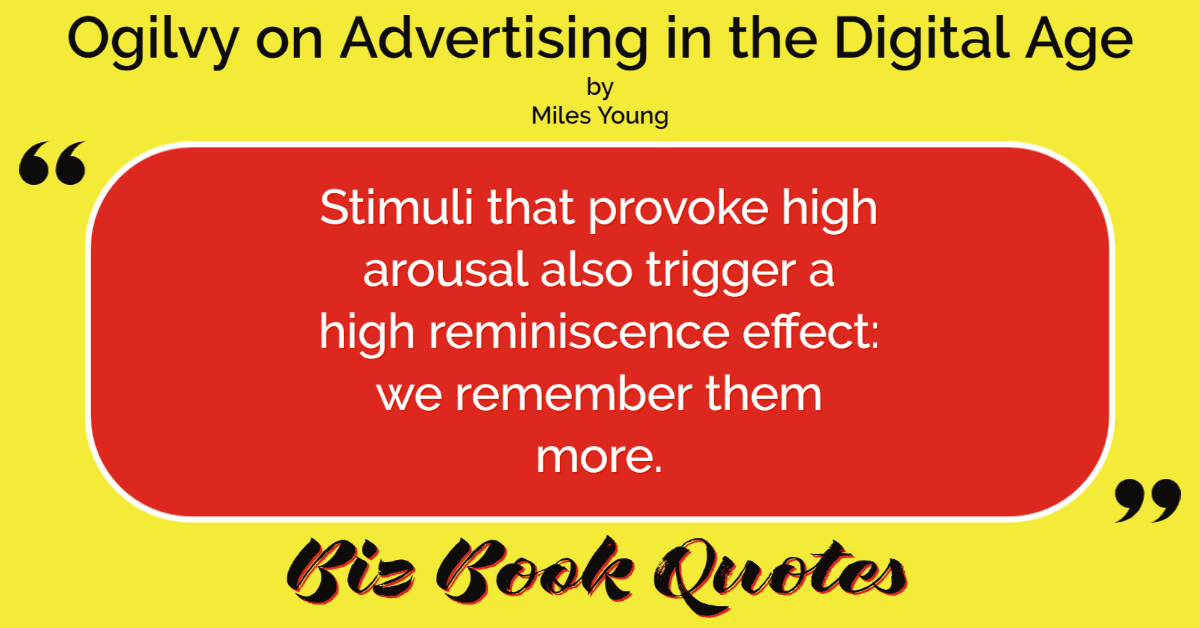 |
Stimuli that provoke high arousal also trigger a high reminiscence effect: we remember them more.
|
079 |
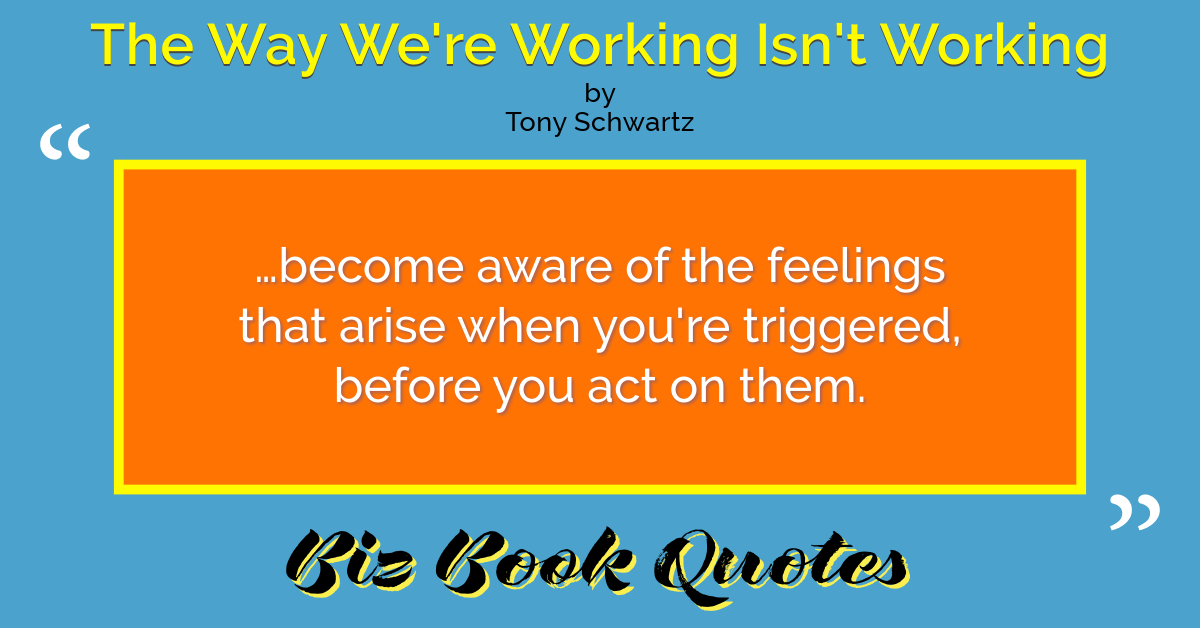 |
…become aware of the feelings that arise when you’re triggered, before you act on them.
|
135 |
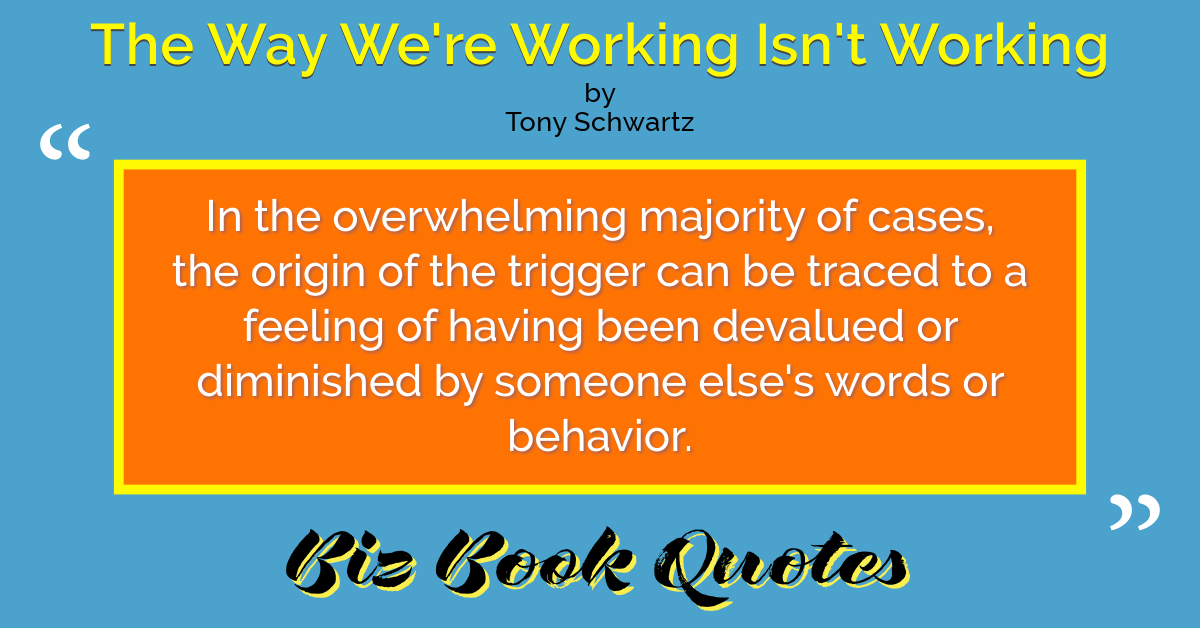 |
In the overwhelming majority of cases, the origin of the trigger can be traced to a feeling of having been devalued or diminished by someone else’s words or behavior.
|
137 |